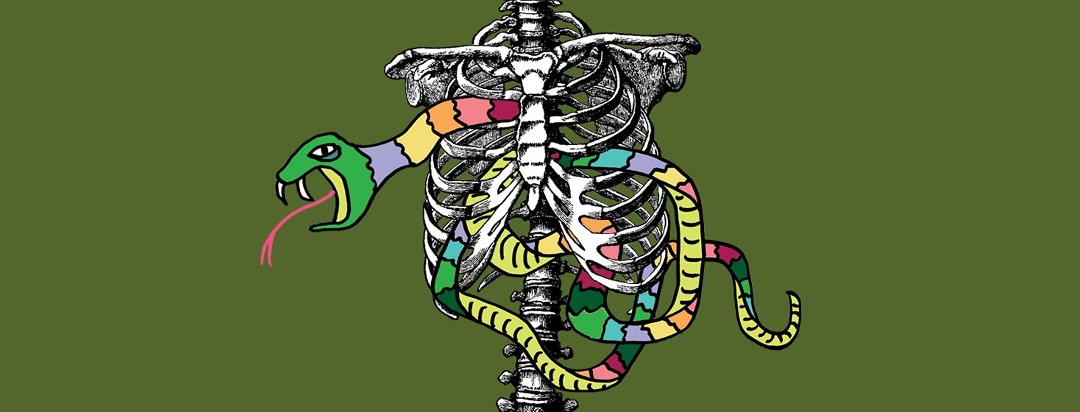How COPD Affects Every Aspect of Life
We recently asked our COPD community on Facebook if there were any symptoms that took them by surprise. Many respondents answered that they were surprised about how COPD has affected every aspect of their lives. They did not expect that so many symptoms would not be directly related to their breathing. One eloquent member summed it up thus: "There's not one aspect of my life this horrid disease hasn't touched and I never felt it coming."
Some experts refer to these non-respiratory symptoms as "extra-pulmonary" or "systemic" effects1 They are not sure exactly what causes these other effects, but suspect that there may be a number of interrelated factors, including:1
- inactivity
- systemic inflammation
- lack of oxygen to the cells and tissues
- oxidative stress
Let's take a closer look at some of these other symptoms.
So much pain
Quite a few people mentioned the pain that often seems to go along with COPD. To be honest, I was a bit surprised about that symptom. In the 4 years I cared for my mom before she passed away, she never complained of any kind of pain, other than when she had a compression fracture in her back. And that seemed more related to her severe osteoporosis than to COPD. Perhaps she was just lucky.
But pain is a very real symptom of COPD. Most people seem to complain of rib pain and/or pain in the chest wall. At times, it feels more like pressure in those areas, while some people experience sharper pains that come and go. Some people describe it as "rib cramps."2 Others say they have upper back pain. Studies have found that as many as 44 to 88% of people with COPD may report chronic pain.3
The exact reason for pain in people with COPD is not entirely clear. In some cases, it might be related to coughing, especially during exacerbations. Experts also theorize it could be related to hyperinflation of the lungs. This is what occurs with the damage to the alveoli in the later stages of COPD.3 This hyperinflation probably:
- presses on the ribs
- strains certain ligaments
- puts undue force on the joints in the chest, rib and back areas
- causes problems with posture
- increases the work of breathing
Depression and being sedentary may also play a role in chronic pain, although more study is needed in this area.
Unending fatigue
It's easy to understand how COPD can sap your energy. When it takes tremendous energy just to breathe, there may not be much left over for anything else. But there may be more factors in play when it comes to your fatigue.
For one thing, you may not be sleeping all that well. It could be that your cough gets worse during the night. Or maybe it's harder to breathe when you lie down. The result can be that it takes longer to fall asleep, you wake up a lot and you rise earlier in the morning. Whatever the reason for disruptions to your sleep, the bottom line is that your body needs rest. So if you don't get it, you may never quite recharge your batteries.
Also, muscle weakness is common when you have COPD. This is often due to a lack of activity. But what comes first?
- Have your muscles gotten weaker because you sit around too much?
- Or is it that you sit around because you don't have the energy to move much?
Chances are, it's a little of both. Also, when you have trouble breathing, you may not be bringing enough oxygen into your body, which can lead to muscle fatigue and weakness.
Other physical effects
Besides the pain and fatigue, there seem to be a number of other systemic effects linked to COPD, including:1,4
- Cardiovascular effects (2-3 times as likely in those with COPD as compared to the general population)
- Alterations in the nervous system
- Loss of bone mass, i.e., osteoporosis
- Nutritional deficiencies, including anemia and low body weight
- Brain fog
Mental health effects
Depression and anxiety are known to be linked to COPD.5 I certainly observed those effects in my mother before she passed. It may be obvious why people with COPD could be anxious and/or depressed. However, experts are not really sure what the exact link is between these disorders and COPD. The widespread inflammation in the body might be a factor.
At any rate, we do know that depression and anxiety can lead to:5
- fear, panic, and hopelessness
- low self- esteem
- social isolation
- dependency on caregivers
And all of those can be a vicious cycle that just keeps repeating and worsening the effects.
Social effects of COPD
Lastly, COPD can bring about enormous changes in everyday life over time. You may have to stop working because you can no longer carry out the duties of your job or career. You may spend more time in your home, because it takes too much energy to get out, especially in social situations. You may find yourself becoming more and more dependent on others.
People with COPD typically need emotional support6, but may not always get as much as they need. There can be many reasons for this:
- Social isolation
- Lack of understanding about the disease from significant others
- Depression and anxiety in the COPD sufferer
If you have COPD or care for someone who does, it's smart to be aware of these more generalized effects, so that you can address them. Also, talk with your health care team. They may have suggestions or be able to prescribe therapies that will help in some cases.
Community Poll
Do you have an exercise routine?

Join the conversation